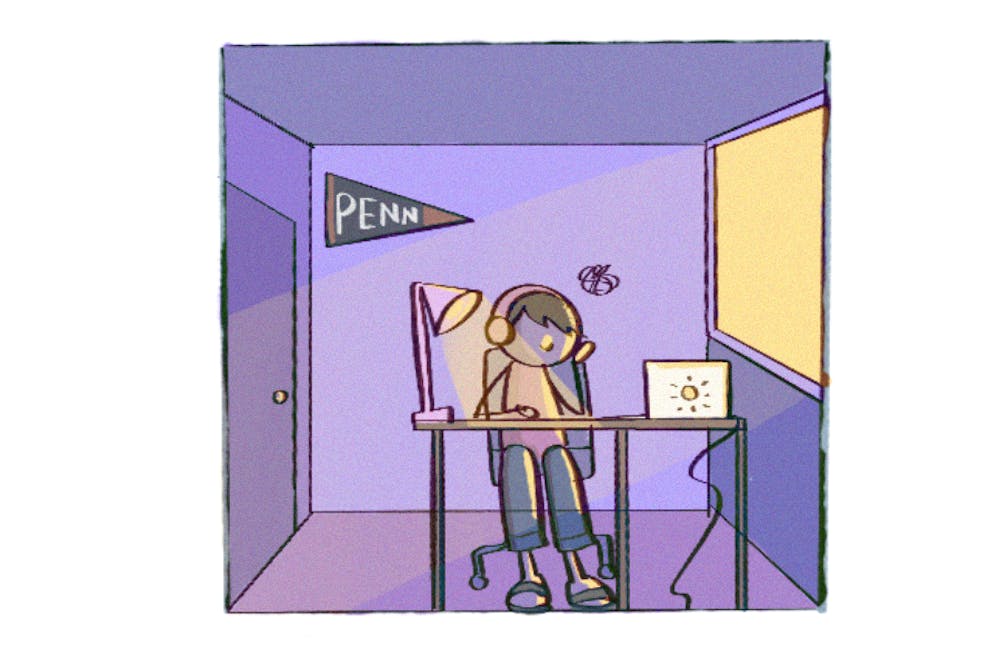
Penn has recently canceled on-campus summer courses, shifting all coursework to a remote format amid the coronavirus outbreak. The University states that, despite this change, there will be no reduction in the cost of summer learning. The announcement, from an email to the entire Penn community, also detailed a tighter budget for the 2021 fiscal year, including a university-wide hiring freeze, restrictions on overtime work, and limited merit-based salary increases or mid-year salary adjustments. While tuition for summer session courses varies based on school, prices range from $4,564 to $7,092 per credit unit, plus an additional general fee.
Many students’ internships or other summer plans are now canceled or shifted to remote work, including many opportunities sponsored by Penn. Students whose fields of interest wait until spring to recruit for summer programs have found hiring processes suspended amid global uncertainty. Many are now searching for other ways to be productive this summer, such as enrolling in online courses for credit. While the budget cuts are indeed substantial, we cannot overlook Penn’s multi-billion-dollar endowment and wonder why the University cannot take a more active role in supporting students this summer by providing more financially accessible learning opportunities. Penn should reduce summer course tuition to allow all students the chance to learn at a feasible cost.
The cost of summer courses has deterred students from enrolling in past summers, and this year many more families are facing financial uncertainty due to the pandemic and its economic fallout. While Student Registration and Financial Services offers a financial aid form for summer courses, they have recommended students only enroll if absolutely necessary. In 2017, less than 10% of enrolled students in summer sessions received a scholarship from SRFS. In a summer where many students will have little to no opportunities to earn money to pay for summer courses, it is more important than ever that Penn support their learning and lower the price of summer tuition.
As the pandemic continues, the nation is experiencing collective grief over lost loved ones, lost plans, and lost memories. Social isolation is immensely harmful to our well-being, causing widespread mental health issues for many students. The Centers for Disease Control and Prevention recommend keeping a routine as a coping mechanism for mental health issues caused by the virus. Online classes have allowed students to maintain a schedule this spring semester. But once summer arrives, many will not have internships or projects that can keep them occupied and help distract them from current circumstances. Penn should do its part to help students maintain a sense of normalcy in a time of panic, and the potential coping mechanism of online courses should be available to all students – regardless of financial background.
When remote learning is accessible to all, it is clear that many students take advantage of the opportunity. About 1,300 students tuned in to the first session of Wharton’s online course on the effects of coronavirus on business. This course shows the possibility and feasibility of reduced-cost or even free Penn courses that are open to all. It also shows how when given the chance, students will seize the opportunity to take more classes at Penn.
While the University clearly requires some tuition intake during the summer period, it should seriously consider reducing costs. Many students will seize the opportunity to take summer courses, and the University should be proud to support them financially, academically, and mentally.
Editorials represent the majority view of members of The Daily Pennsylvanian, Inc. Editorial Board, which meets regularly to discuss issues relevant to Penn's campus. Participants in these meetings are not involved in the reporting of articles on related topics.
The Daily Pennsylvanian is an independent, student-run newspaper. Please consider making a donation to support the coverage that shapes the University. Your generosity ensures a future of strong journalism at Penn.
Donate






